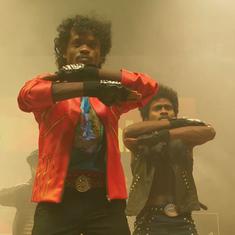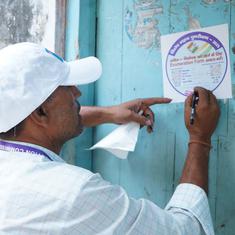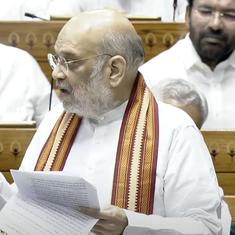The Big Story: Sale fail
It was supposed to be the showpiece stake sale for the government of India this year, a key part of a very ambitious disinvestment target. Instead, when the bidding deadline for parties seeking to buy India’s national airline, Air India, elapsed last week, the total number of offers was zero. Now the government will have to go back to the drawing board, with no easy way out of this uncomfortable situation. Prime Minister Narendra Modi may want a reformist image but, as US President Donald Trump might put it, his government is a lousy salesperson.
The government announced the sale of Air India last year, and officially revealed the terms of the offer in March. As much as 76% of the airline wasup for grabs, including 100% in low-cost airline Air India Express as well as 50% of the airport ground handling company AISATS. The government would retain 24% of the airline, without any special voting rights, and the company would be expected to be bought together rather than piecemeal. Whoever bought Air India would also get its Rs 33,000 crore debt.
When the deadline was first extended at the start of May, the government claimed that it had received as many as 160 inquiries about the deal, and was fully expecting bids to come in at the last minute. But the tone had been set when the three major Indian operators, IndiGo, Jet Airways and SpiceJet, said they would not be bidding soon after the terms of the offer were made clear. There was still some hope that an international group might partner with an Indian one to put forward a bid, but in the event, no bid materialised.
This leaves the government flying around in circles. Does it now infuse more money into the debt-laden airline to try and make it profitable – even though it has already publicly declared it would rather get rid of the asset? Does it give in to private demands to change the terms and conditions of the sale, a decision that might mean realising less revenue from the sale than it had hoped for? Or does Air India continue as it has been for the last few years, with the government hoping to sell it, yet not quite doing so, forcing the business to still be run by bureaucrats?
There is no easy answer here and, since the sale of Air India was supposed to be a large chunk of the disinvestment target the government set for this year, not selling it will also endanger the fiscal deficit, which is already grappling under oil prices and the likelihood of heavy spending in an election year.
Neither camp, those who believe the government should not sell the national airline and those that believe the state has no business being in business, will be happy with this failed in-between situation. In some ways, this is the perfect example of what has gone wrong with Modi’s government. The prime minister has found it easy to carry out moves like demonetisation, by diktat, but when having to conduct genuine engagement, things have not gone as planned. Will the government figure out what went wrong here, and what that means for how it handles all the other public sector units that the government still owns?

Punditry
- “The important lesson that regional Opposition parties can take away from the victory in Kairana is that formation of similar, smaller alliances by regional/state parties at the level of individual states/regions might be more possible, and a far more effective method to keep the BJP in check,” write Sudha Pai and Sajjan Kumar in the Indian Express.
- “The need for an integrated federal public finance that takes local governments into account in macro policymaking and in formulating strategies to ensure regional equity and for evaluating the revenue potential and fiscal capacity does not seem to have occurred to the decision-makers of the country,” writes MA Oomen in the Hindu.
- “The stage is being set for a great maritime game in the Indo-Pacific. While India’s stepping up to play the game is commendable, there are serious structural and operational handicaps that it will have to overcome,” says WPS Sidhu in Mint.
- “Urban elites tend to snigger at the likes of Mayavati and Deve Gowda; Hemant Soren and MK Stalin. But these leaders have a great deal of experience in working at the state level and a hands-on understanding of people’s issues. When such grass roots leaders become part of a Central coalition, it deepens – not diminishes – India’s tryst with democracy,” writes Manini Chatterjee in the Telegraph.
Giggle
#cartoon @timesofindia #bypoll #Kairana pic.twitter.com/CAELJwXl3t
— Sandeep Adhwaryu (@CartoonistSan) June 2, 2018
Don’t miss
Every morning, Scroll.in brings you the day’s most important stories to start you ahead. Check out Your Morning Fix:










